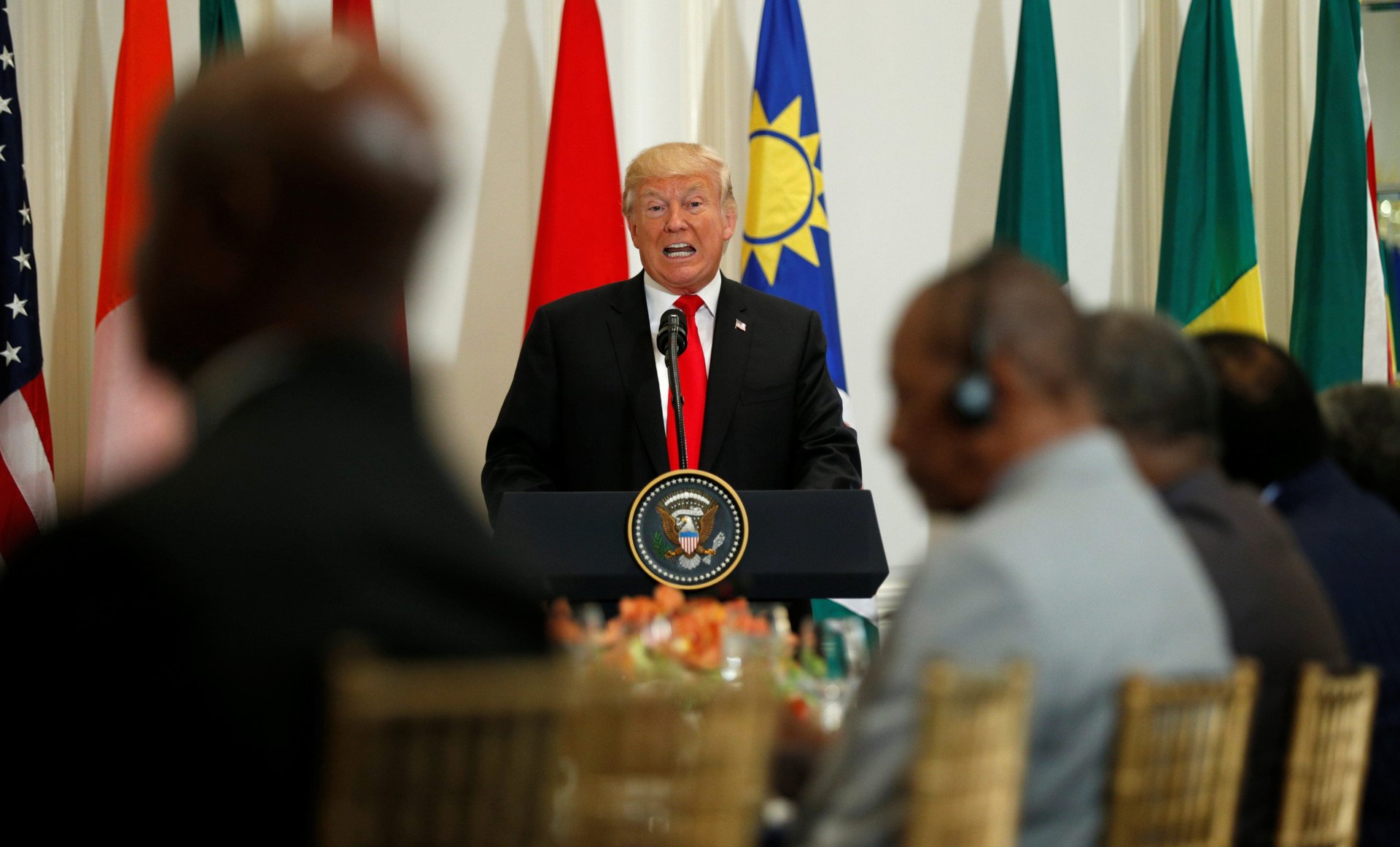Here’s what president Trump got right in his much ridiculed Africa speech
US president Donald Trump has demonstrated his indifference toward Africa in a number of ways over the past nine months. In July, he left in the middle of a G-20 session on African health and migration, tapping his daughter Ivanka to fill in for him. During a G-7 gathering in Italy in May, Trump removed his headphones when the president of Niger began delivering remarks in French.


US president Donald Trump has demonstrated his indifference toward Africa in a number of ways over the past nine months. In July, he left in the middle of a G-20 session on African health and migration, tapping his daughter Ivanka to fill in for him. During a G-7 gathering in Italy in May, Trump removed his headphones when the president of Niger began delivering remarks in French.
This week, the president repeatedly mispronounced the name of the southern African country Namibia as “Nambia”, possibly conflating it with its neighbor Zambia, at a luncheon with African leaders at the United Nations. He also said Nigeria had faced a “horrifying” battle with Ebola. It hadn’t, but Liberia had.
Yet Trump’s remarks, one of the few statements his administration has made on Africa, reveal at least one potential policy priority for the president. Beginning his speech with what seems to have been an awkward attempt at a joke, Trump stressed the continent’s business and investment potential.
“Africa has tremendous business potential. I have so many friends going to your countries, trying to get rich,” he said, pausing and smiling, but receiving only silence in response. He recovered, adding, “But it does, it has a tremendous business potential and representing huge amounts of different markets. And for American firms it’s really become a place that they have to go, that they want to go.”
Trump called for increasing US trade and investment in half a dozen industries from agriculture to tourism. He noted that the Millennium Challenge Corporation, an aid agency created by George W Bush, is considering an investment in Côte d’Ivoire, which has been a recipient of the program since 2015. Given that six of the world’s fastest growing economies are in Africa, the continent has “tremendous, tremendous potential,”according to the president. (The World Bank has updated for 2017 that just three of the world’s fastest expanding economies are in Africa: Ethiopia, Djibouti, and Tanzania.)
Africa is indeed an opportunity that US businesses are missing out on. US exports to Africa fell to $17.8 billion last year, from $38 billion in 2014. Meanwhile, Chinese exports to the region reached $102 billion in 2015. The European Union is negotiating trade agreements with regional African blocs while the US has not signed a new bilateral investment treaty in Africa since 2005.
The president’s speech, however puzzling, is at least a departure from a bare-bones US-Africa policy so far. The nine-month old administration’s main engagement with Africa has been proposing cuts to PEPFAR, a crucial US-funded health program in Africa, sending US troops to Somalia to fight the extremist group al-Shabaab, and finalizing a $593 million weapons sale to the Nigerian military. Most US ambassadorships to African countries are still unfilled.
In June, at a US-Africa business council summit, Akinwumi Adesina, president of the African Development Bank, appealed to the president using his own language. “Africa offers you all ‘The Deal of the Century,’ and America should in no way not be left behind.” Maybe the US is finally paying attention.